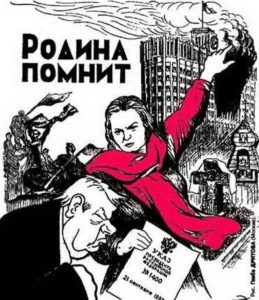On this day, exactly 30 years ago, Yeltsin, with the direct blessing from the USA, gave order for the tanks to open fire on the Parliament building in Moscow, that also was known as “The White House”. This ended the confrontation between the defenders of the Russian Constitution and Yeltsin, who was unconstitutionally concentrating more power in own hands, a confrontation that started with
30 years is a long enough stretch to time to be able to look at the events of that Autumn with a critical eye, yet short enough for many of the contemporaries and direct participants of the evens to be around to remember what was happening on both sides of the barricades. In a few weeks I will finish translating a documentary that does just that. But first, a short look at the political spread in 1993 both internally and coming from the USA. And this publication will be concluded with a fragment of the last interview with one of the main participants of the stand-off, who defended the Parliament – Ruslan Hasbulatov, who passed away on the 3rd of January 2023.
In the previous post, Autumn of 1991 as a Prelude to the “Black October” of 1993 and the “Wild ’90s” in Russia, I described in short the turmoil of the Autumn of 1991. Back then Yeltsin played a major role in the breakup of the USSR, and it was he who, in a feat of projection, accused the SCSE – which tried to save the country – of being the coup-makers. At that time Yeltsin became an important asset in the US State Department’s arsenal, one that the USA would have been loath to lose. In 1993 Yeltsin had the complete backing of the USA, but his ability to give external control to Russia was severely limited by the Parliament. This lead to passing of the unconstitutional Decree 1400. At the same time the experience of 1991 was again used, with the Parliament being presented as coup makers, and not as defenders, in the public view. The liberal crowd began an assault on the Constitution, basically saying who needs a Constitution like this (meaning, where Yeltsin cannot do anything he wants).

